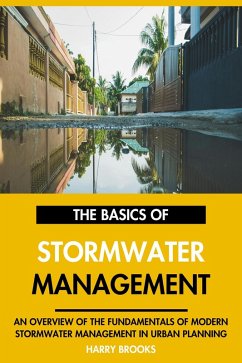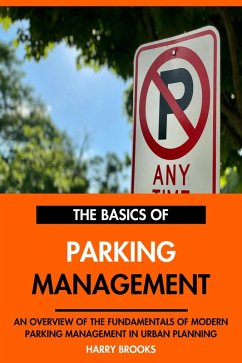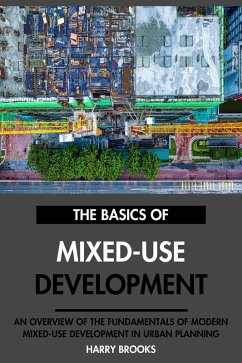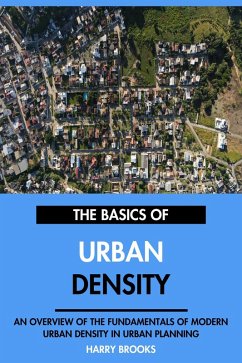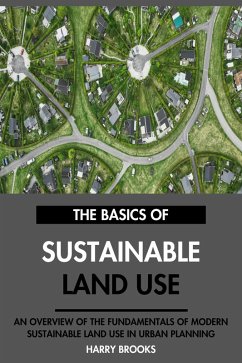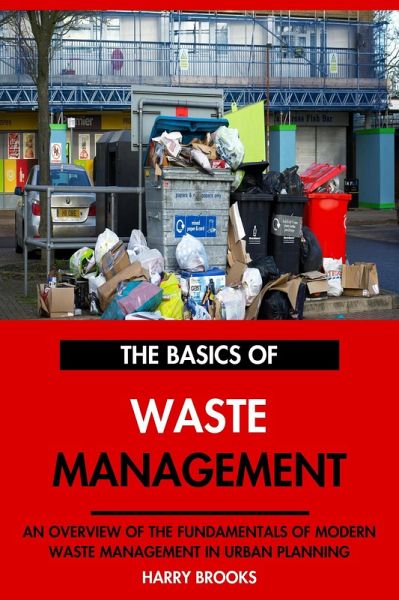
The Basics of Modern Waste Management: An Overview of the Fundamentals of Waste Management in Urban Planning. (eBook, ePUB)

PAYBACK Punkte
0 °P sammeln!
Waste management has emerged as a pressing concern in the context of urban development, driven by the rapid growth of urban populations and the increasing complexity of waste generation. As cities expand, the volume and diversity of waste produced pose significant challenges that require innovative solutions and comprehensive management strategies. This eBook aims to explore the intricacies of waste management within the framework of urban planning, providing insights into the fundamental principles, practices, and emerging trends that shape this critical field.The importance of effective wast...
Waste management has emerged as a pressing concern in the context of urban development, driven by the rapid growth of urban populations and the increasing complexity of waste generation. As cities expand, the volume and diversity of waste produced pose significant challenges that require innovative solutions and comprehensive management strategies. This eBook aims to explore the intricacies of waste management within the framework of urban planning, providing insights into the fundamental principles, practices, and emerging trends that shape this critical field.
The importance of effective waste management cannot be overstated. It is not merely a logistical challenge; it is a vital component of public health, environmental sustainability, and economic development. Poor waste management can lead to a myriad of issues, including pollution, health hazards, and diminished quality of life for urban residents. Conversely, well- implemented waste management practices can enhance urban livability, promote resource recovery, and contribute to the overall resilience of cities.
In this eBook, we will delve into various aspects of waste management, beginning with an overview of its fundamentals in urban planning. Subsequent chapters will explore topics such as the role of technology in waste management, the importance of community engagement, regulatory frameworks, and the pursuit of zero waste goals. Each chapter will provide a detailed examination of these topics, offering practical insights and real-world examples that illustrate the challenges and opportunities inherent in waste management.
As we navigate the complexities of waste management, it is essential to recognize the interconnectedness of various stakeholders, including government agencies, private sector entities, non-profit organizations, and community members. Collaboration among these groups is crucial for developing effective waste management strategies that address local needs and promote sustainability. By fostering partnerships and engaging communities, urban planners can create more resilient and adaptive waste management systems.
The journey toward effective waste management is not without its challenges. Urban planners must contend with issues such as limited space for waste disposal, fluctuating waste generation rates, and the need for public education on sustainable practices. However, these challenges also present opportunities for innovation and creativity. As cities continue to evolve, the potential for developing cutting-edge waste management solutions that prioritize sustainability and resource recovery is immense.
This eBook is intended for urban planners, policymakers, students, and anyone interested in understanding the critical role of waste management in shaping sustainable urban environments. By providing a comprehensive overview of waste management principles and practices, we hope to inspire readers to take action in their communities and contribute to the development of effective waste management strategies.
As we embark on this exploration of waste management in urban planning, it is essential to remember that the choices we make today will have lasting implications for future generations. By prioritizing sustainable waste management practices, we can create urban environments that are not only livable but also resilient, equitable, and environmentally responsible. Together, we can work toward a future where waste is minimized, resources are conserved, and urban communities thrive.
The importance of effective waste management cannot be overstated. It is not merely a logistical challenge; it is a vital component of public health, environmental sustainability, and economic development. Poor waste management can lead to a myriad of issues, including pollution, health hazards, and diminished quality of life for urban residents. Conversely, well- implemented waste management practices can enhance urban livability, promote resource recovery, and contribute to the overall resilience of cities.
In this eBook, we will delve into various aspects of waste management, beginning with an overview of its fundamentals in urban planning. Subsequent chapters will explore topics such as the role of technology in waste management, the importance of community engagement, regulatory frameworks, and the pursuit of zero waste goals. Each chapter will provide a detailed examination of these topics, offering practical insights and real-world examples that illustrate the challenges and opportunities inherent in waste management.
As we navigate the complexities of waste management, it is essential to recognize the interconnectedness of various stakeholders, including government agencies, private sector entities, non-profit organizations, and community members. Collaboration among these groups is crucial for developing effective waste management strategies that address local needs and promote sustainability. By fostering partnerships and engaging communities, urban planners can create more resilient and adaptive waste management systems.
The journey toward effective waste management is not without its challenges. Urban planners must contend with issues such as limited space for waste disposal, fluctuating waste generation rates, and the need for public education on sustainable practices. However, these challenges also present opportunities for innovation and creativity. As cities continue to evolve, the potential for developing cutting-edge waste management solutions that prioritize sustainability and resource recovery is immense.
This eBook is intended for urban planners, policymakers, students, and anyone interested in understanding the critical role of waste management in shaping sustainable urban environments. By providing a comprehensive overview of waste management principles and practices, we hope to inspire readers to take action in their communities and contribute to the development of effective waste management strategies.
As we embark on this exploration of waste management in urban planning, it is essential to remember that the choices we make today will have lasting implications for future generations. By prioritizing sustainable waste management practices, we can create urban environments that are not only livable but also resilient, equitable, and environmentally responsible. Together, we can work toward a future where waste is minimized, resources are conserved, and urban communities thrive.
Dieser Download kann aus rechtlichen Gründen nur mit Rechnungsadresse in A, B, CY, CZ, D, DK, EW, E, FIN, F, GR, H, IRL, I, LT, L, LR, M, NL, PL, P, R, S, SLO, SK ausgeliefert werden.





